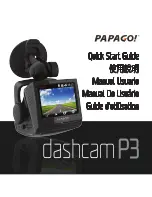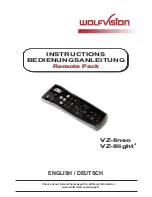
8
Int
roductio
n
Caution and Warning Symbols
These Operating Instructions feature the following caution and warning symbols to indicate
items of special importance. Be sure to read the contents of these warnings carefully, and
use the features correctly.
Handling Precautions
<Precautions for Operating the Camera>
• This camera is not designed to be waterproof, and cannot be used in the rain or under
water. If the camera should inadvertently be exposed to water, it should be taken quickly
to a Kyocera/Yashica Service Center for inspection.
• Take great care to keep the photography lens and light sensor clean since soiling such as
fingerprints can affect the accuracy of the camera’s metering and focusing functions. If
these areas become soiled and require cleaning, wipe them gently with a third-party lens
cleaning cloth. Any dust should be removed using a blower or lens brush.
a
DANGER
This symbol indicates procedures which have a high likelihood of resulting in
death or serious personal injury if not followed properly.
a
WARNING
This symbol indicates handling procedures which may result in death or
personal injury if not followed properly.
a
CAUTION
This symbol indicates procedures which may result in injury to the user, or
physical damage to the product if not followed properly.
a
WARNING
• If camera or batteries become hot, emit smoke or a burning smell, or display other
abnormal symptoms, remove them from the camera immediately to prevent fire.
When handling the batteries, take precautions to avoid being burned.
• Never attempt to disassemble or modify the camera, since you may receive a
severe electric shock.
• Do not operate the electronic flash at close proximity to a person’s eyes
(especially those of an infant), since eye damage may result.
• Do not attempt to take pictures while driving or walking since you may cause an
accident.
• When taking pictures, remain aware of your surroundings and what is
happening around you.
a
CAUTION
• Clean the camera well after using it at the beach or other locations subject to
large concentrations of sand or dust. Salt air may promote corrosion of metal
components and damage or short circuits in electronic parts, causing the
camera to emit smoke or catch fire. Sand inside the camera may result in
internal damage and operating malfunctions.
• If the camera is brought quickly from a cold place to a warm room, condensation
may form on the lens and internal parts. Such condensation may result in damage
or short circuits in electronic parts, causing the camera to emit smoke or catch
fire. Whenever possible, avoid subjecting the camera to sudden changes in
temperature, and if condensation occurs, turn off the camera power quickly and
leave it off until all condensation is gone.
• This camera is a precision electronic instrument, and should be protected from
impacts and falls that might cause damage to internal parts or the shorting of
circuitry.
• This camera is an electronic device which uses a high-performance IC. The heat
emitted from IC may make the camera hot during use. It is not a failure.
• When taking the camera overseas or using it to record important events,
check its operating condition and take test pictures beforehand to confirm
proper operation.
Finecam_E.book Page 8 Thursday, August 28, 2003 6:21 PM









































